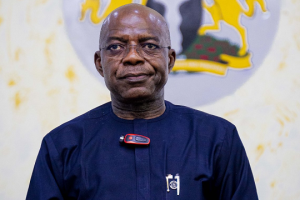
The Presidency has laid the blame for the worsening state of insecurity across Nigeria squarely on the shoulders of state governors, accusing them of gross underutilization of security votes even as violence surges in states like Plateau, Benue, and Enugu.
Speaking during an appearance on TVC’s “Beyond the Headlines” with Nifemi Oguntoye on Monday, Daniel Bwala, Special Adviser to the President on Policy Communication, expressed deep concern over what he described as the poor financial support provided by governors to security agencies operating within their domains.
Security Votes Mismanaged Despite Soaring Insecurity
According to Bwala, several governors allocate paltry sums—sometimes as low as ₦20 million per month—to critical security institutions such as the State Security Service (SSS), the police, and the military, even though these same governors receive monthly security votes ranging from ₦1 billion to ₦3 billion.
“It is disheartening to discover that in some states, the monthly allocation to the SSS, the police, and the army is a mere ₦20 million each. Meanwhile, the same governors manage security votes that run into billions. One has to ask—where is all that money going?” Bwala questioned.
This financial negligence, he argued, contributes significantly to the inability of security operatives to respond effectively to threats and attacks across communities.
State Police Debate and Failures in Local Governance
On the subject of the increasing calls for the establishment of state police, Bwala provided a more nuanced view. While acknowledging the urgency of Nigeria’s security crisis, he contended that state governors already possess both the financial and legal frameworks needed to combat crime, but lack the political will to act decisively.
“Governors already have at their disposal the SSS, police, military, and even the constitutional latitude to establish community or quasi-paramilitary outfits,” Bwala said. “The issue is not the absence of resources or authority, but the refusal to utilize them effectively.”
He added that if governors committed even a modest portion of their security funds to practical measures—such as procuring surveillance drones, patrol vehicles, communications gear, and intelligence tools—the results would be visible within months.
Bwala lamented that in many instances, criminal elements appear better equipped than security personnel, with some criminal gangs even deploying drones for surveillance during attacks.
Skepticism About the Feasibility of State Police
While not outrightly rejecting the concept of state police, Bwala warned against viewing it as a quick fix. He raised concerns about the financial sustainability of state police forces, especially in states already grappling with unpaid salaries and poor fiscal management.
“You have governors saying they can’t pay salaries, and now you want them to fund an entirely new police system? Who will pay those officers? How do you maintain them?” he asked.
He emphasized that Nigeria does not need to wait for the creation of a state police structure before addressing its pressing security challenges. Instead, Bwala insisted that governors should first demonstrate commitment by properly utilizing the tools and funding already at their disposal.
“We can’t keep using the excuse of not having state police to justify inaction. Security is achievable now if we make the right decisions.”
As the nation battles increasing waves of violence and terror, the Presidency is placing more pressure on state governors to step up and take responsibility. Rather than pass the buck or wait for new systems to emerge, the federal government is urging state leaders to channel their existing resources effectively in the fight against insecurity.





